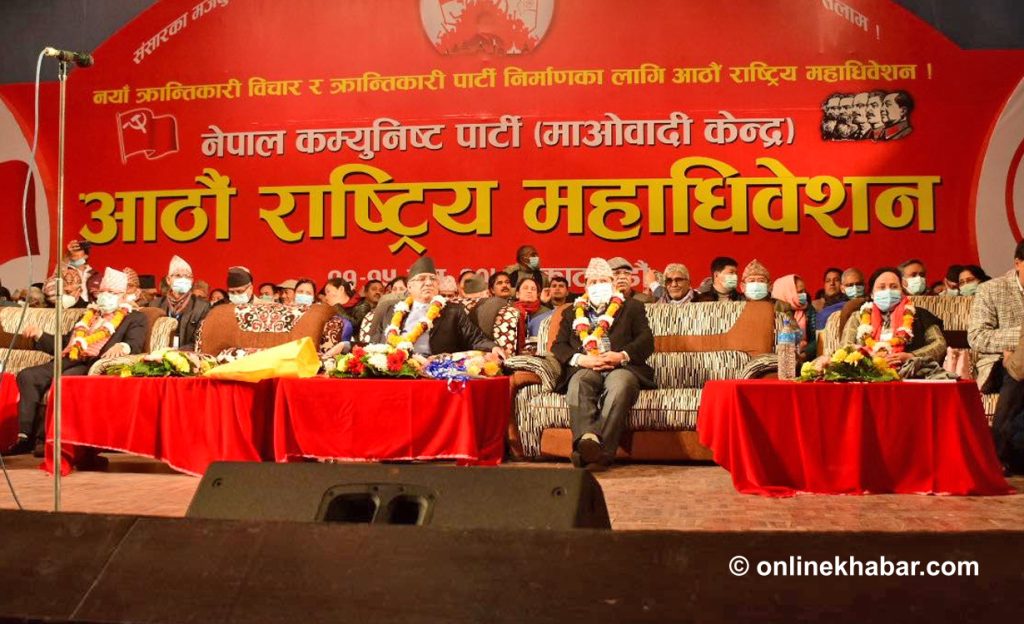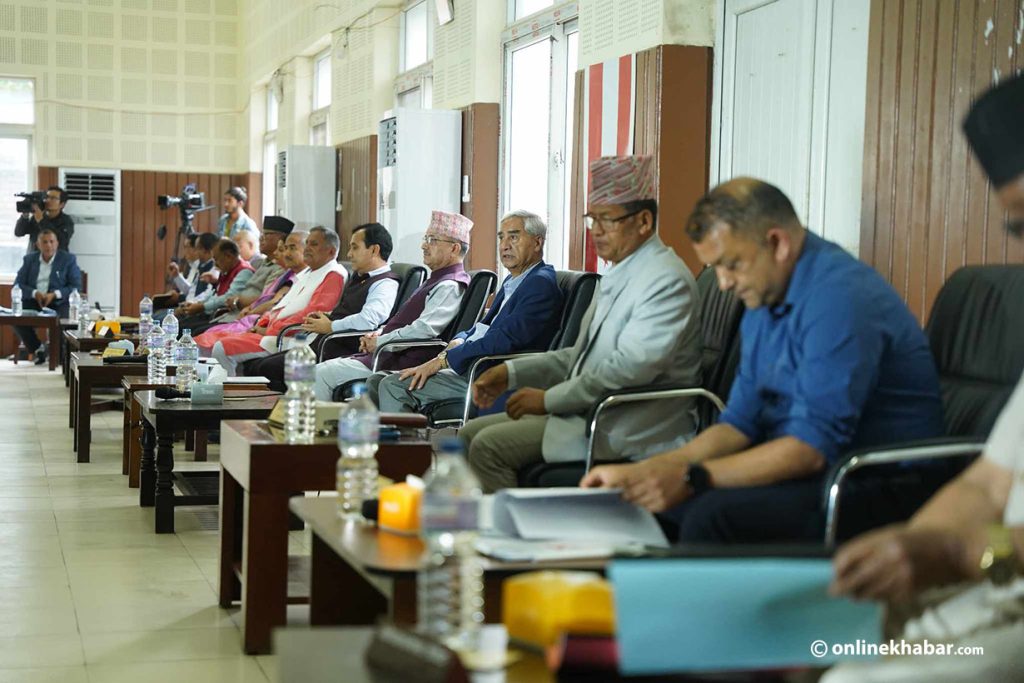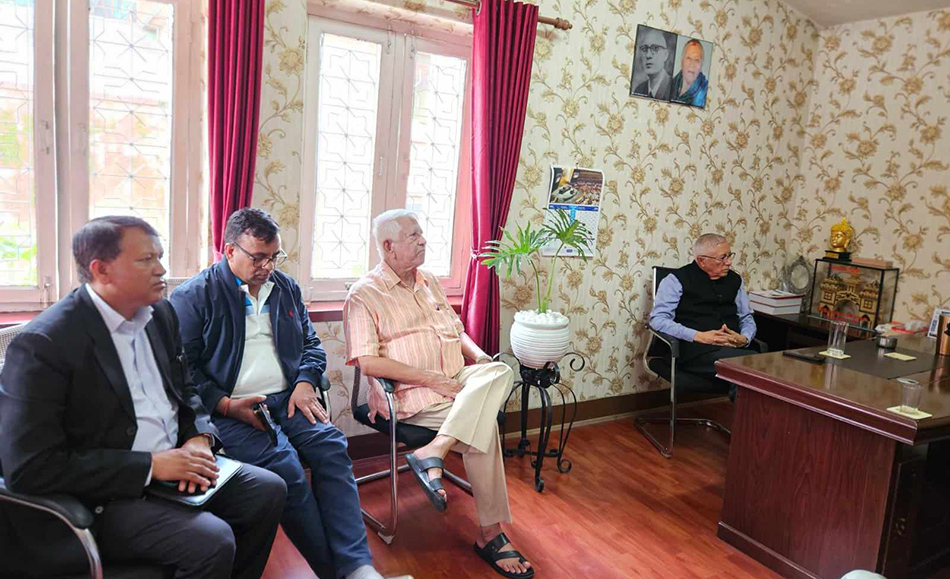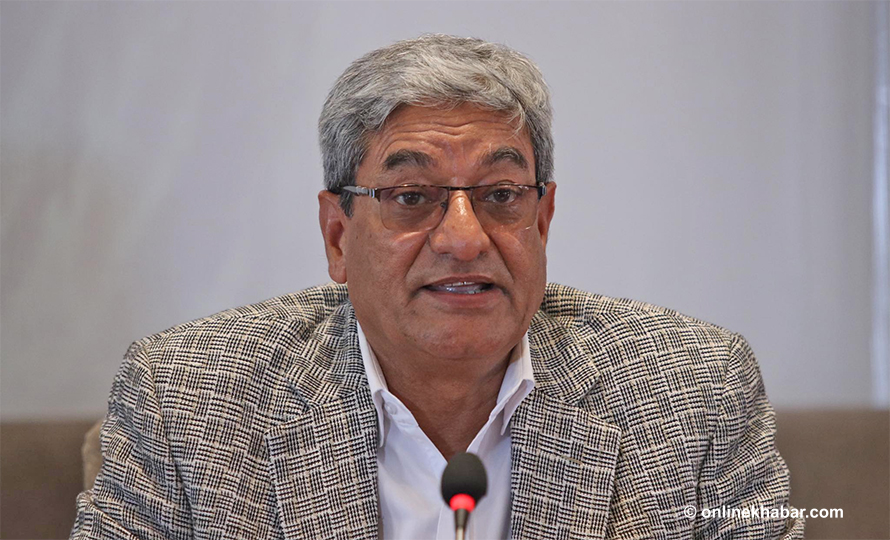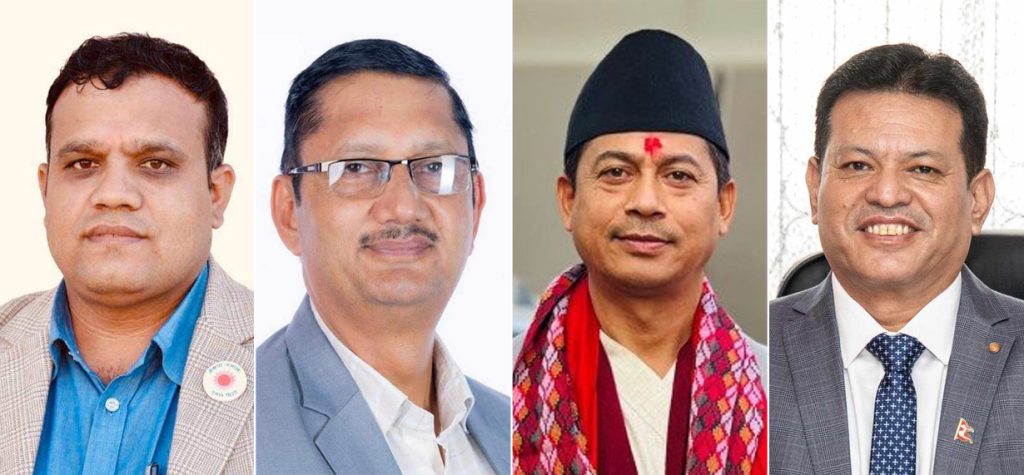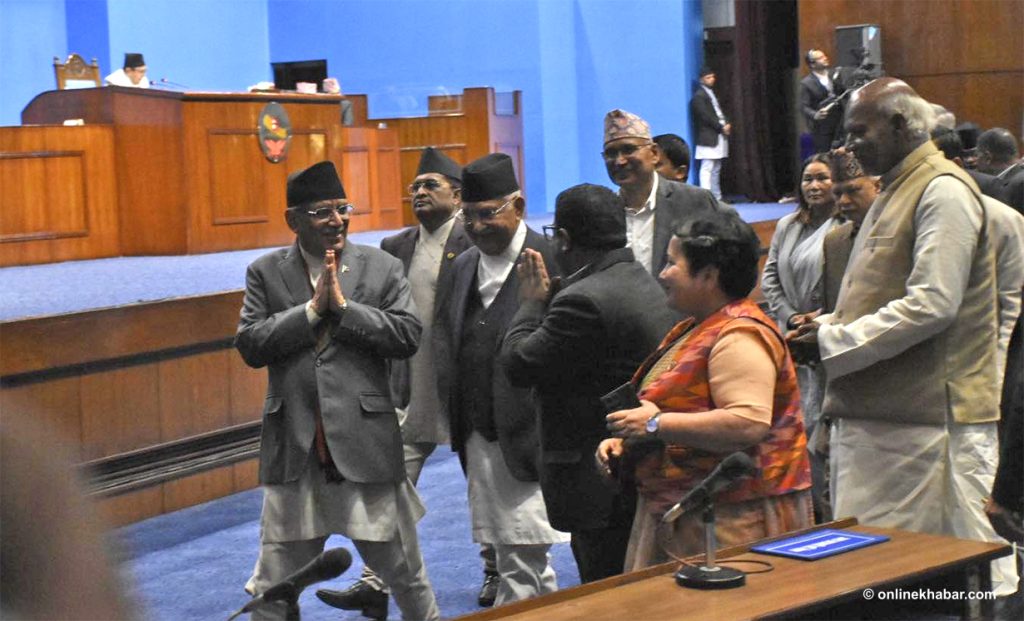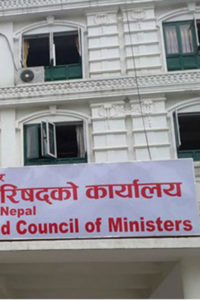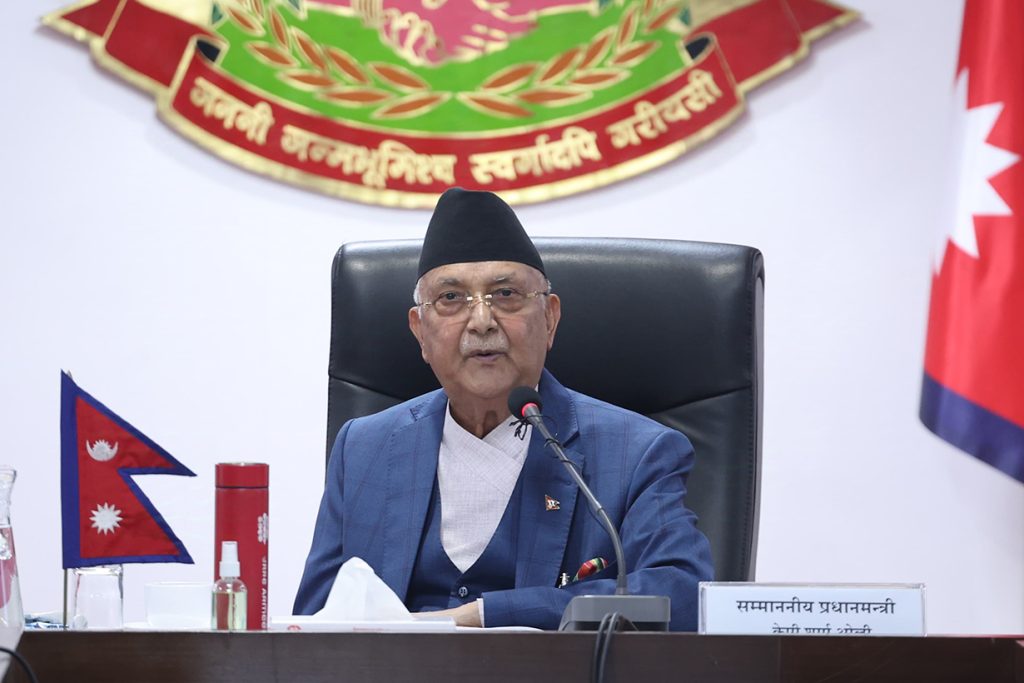The general conventions of the CPN-UML and Nepali Congress reelected former party chairs for the next tenure while the CPN-Maoist Centre concluded its convention handpicking the central committee members by the party chairman Pushpa Kamal Dahal. The committee chose Dahal as the chairman again. No cadres in the party got a feeling that intra-party democracy was present there.
The timely intra-party election is the skeleton for intra-party democracy in any political party. An open and meticulous discussion on the party’s ideological orientation and vision for the country’s prosperity and evaluation of its set strategies for the achievement of the same makes the party ideologically vibrant. This is what intra-party democracy means. In contrast, the lack of debates on the ideological direction of the parties within CPN-UML and Nepal Congress’ conventions signals the pertinent ideological crisis within the parties. The Maoist Centre somehow discussed the issues, but it also could not show an example of intra-party democracy. Hence, the recent trends are a threat to the nascent republic of Nepal.
Democracy in peril
In the Maoist Centre, Chairman Dahal brought into discussion the party’s vision and further strategy, but it was criticised by the convention representatives claiming it to be incomplete and it failed to analyse the current political concerns. Further, he remained silent on the counter-proposal tabled by Ram Karki and dissenting views forwarded by other few leaders. The failure of Dahal to answer the issues raised by the discussion groups upon his ideological and political report indicates the growing dissatisfaction of party cadres with their leadership including the issues of lavish lifestyles of Maoist leaders and their relationship with big contractors and businesspeople. On the other hand, it is also a suggestion of shrinking intra-party democracy.
The common pattern against the idea of intra-party democracy among the three major parties is the consolidation of the ruling elites in the leadership, sidelining the principles of inclusion in the selection of officeholders. This is visible among the personalities appointed as UML’s top officials and elected candidates for Nepali Congress leadership. Although Nepali Congress tried to make its structure inclusive through the reservation system for various identity clusters in the positions of deputy general secretary, the candidates from minorities, women and other unrepresented groups got largely defeated in the direct elections for various party posts, giving a clear signal that intra-party democracy is in peril there too.
Nonetheless, the selection of “youth” in the top party positions within the CPN-UML and Nepali Congress can be seen as a positive move towards intra-party democracy. The election of new-generation politicians Gagan Thapa and Bishwa Prakash Sharma as general secretaries of Nepali Congress, Gokarna Raj Bista and Yogesh Bhattarai as secretaries of CPN-UML among many other youth leaders in various central positions is a positive step to shift the party leadership to the younger generation.

Restriction on dissent
Except for the Nepali Congress, the lack of intra-party democracy was vividly surfaced during the conventions of the major three political parties. UML Chairman KP Sharma Oli’s motive was to appoint all leadership positions and central committee members through consensus, restricting dissent and competition. Although he was challenged by Bhim Rawal for the post of party chair, Oli handpicked most of the central committee members and office-bearers.
Oli’s strong disregard for democratic practice, ideological discussions or political programmes in the disguise of consensus politics and his desire to be appointed as the unchallenged party president signal his authoritarian dynamics and institutionalisation of his cult personality within the party.
Likewise, at Maoist Centre’s convention, democratic elections for the party positions were kept aside in the name of appointing the office bearers and central committee members through consensus.
Nepali Congress selected its party officials and central committee members through democratic practice, giving a sense that some intra-party democracy still exists there. However, the Nepali Congress convention focused entirely on the election of the central committee members and office bearers, failing to open up the platform for ideological debates and discussion of the party’s vision and further strategies. Surprisingly, there were no political reports presented in the convention from the leadership, leaving no grounds for discussion on the party’s ideological dynamics. This deconstructed the idea of intra-party democracy it wanted to show.
Although a candidate for party chairman, Shekhar Koirala, and candidates for general secretaries Gagan Thapa and Bishwa Prakash Sharma put forward their concept papers on their vision, priorities and party’s further direction, there was no formal space for discussion on their proposals. The reelected chairman Sher Bahadur Deuba oriented himself solely on the election rather than unveiling his vision, ideas and further action plan for the party. This gap on the convention of Nepali Congress testimonies the escalating ideological crisis within the party that claims to be the largest social-democratic political party in Nepal.
This escalating ideological crisis within the political parties, a lack of vision and clear action plan, disregard for the democratic norms in the selection of party leaders and setting aside the issues of inclusion as envisioned by the constitution of Nepal leave ample grounds for suspicion about the intention of political parties to institutionalise not only intra-party democracy but the nascent republican system of governance in Nepal.



